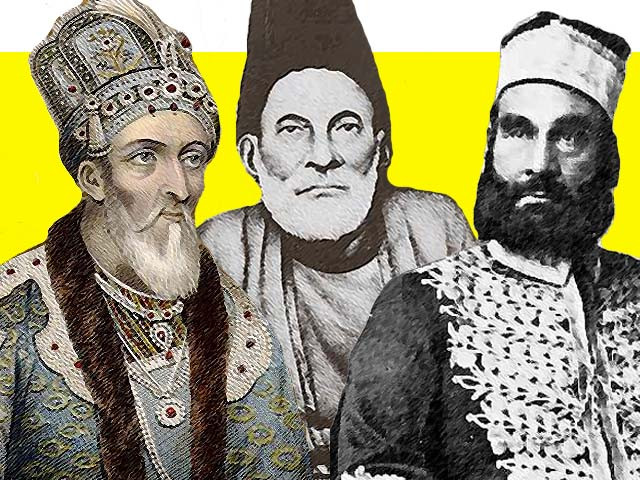Bad times have befallen Delhi again. The capital of India has been in the news lately because of the widespread protests by citizens and students across the communal, linguistic, cultural and religious divides which have come to the forefront ever since the promulgation of the controversial Citizenship Amendment Act (CAA) passed by the Narendra Modi government. Delhi has been the site of protests, most of them congregating in and around the Jawaharlal Nehru University (JNU), the Jamia Millia Islamia and Shaheen Bagh. Interestingly, the protest poems of Pakistani resistance poets like Faiz Ahmed Faiz and Habib Jalib have become very popular during these protests.
The protesters can be forgiven for forgetting that around 200 years ago, Delhi itself had a gifted plethora of Urdu poets who chronicled in verse the numerous times Delhi was invaded, sacked and looted; from the multiple invasions of Ahmed Shah Abdali to the plight of the city following India’s First War of Independence, when British recriminations against the city’s beleaguered population began. These poets were among the best and brightest of the Urdu literary firmament: Mir Taqi Mir, Bahadur Shah Zafar, Mirza Ghalib and Dagh Dehlavi. It is instructive and chastening to consider their work now (not only because today happens to be World Poetry Day), and ponder upon what they might have felt and written today upon seeing their beloved Delhi riven by bloodletting once again.
Mir (1723-1810) lived through the multiple invasions of Abdali and looking at the plight of his beloved city he remarked:
“You ask about the whereabouts O residents of the East
Knowing us to be poor, calling us out in jest
Once Delhi was a city, select in the world
Where a selected few remained for purposes of livelihood
Which, looted by Heaven was laid desolate
We are the very residents of this territory of waste”
On another occasion, Mir had cautioned:
“Mir do not go to the doors of the Delhi rich
Thanks to their wealth I have become a poor wretch”
Bahadur Shah Zafar (1775-1862), the last Mughal king, and a competent poet in his own right, was one of the three great Urdu poets who witnessed the consequences of the defeat at the hands of the British during the War of Independence of 1857. He was stripped of his emperorhood, watched his family members get executed by the victorious British forces and eventually died in exile in Rangoon. His death ended the Mughal empire, and marked the descent of Delhi into colonial servitude. In his words:
“Without home or hearth we wander and we suffer
The sad tale of Delhi narrated by Zafar”
Mirza Ghalib (1797-1869) was another illustrious witness to British depredations post-1857. He wrote:
“An ocean of blood churns around me
Alas! Were this all!
The future will show
What more remains for me to see”
According to one anecdote, eerily reminiscent of the current climate for Muslims in Delhi, British soldiers once accosted Ghalib in a post-1857 round-up. The soldiers asked him, “Are you a Muslim?” Ghalib replied, “I am half-a-Muslim.” Watching their mystified expressions, he ventured a clarification: “I drink liquor, but do not eat pork.”
Dagh Dehlavi (1831-1905), whose 115th birthday was celebrated earlier this week, lived much of his life in Delhi but chose to move south after the 1857 upheaval and its aftermath. He wrote,
“Dagh move from Delhi, let us tour the Deccan
The pearl was valued after it left the ocean”
Dehlavi was in Delhi though when the incidents of the War of Independence began in the city. First the national armies captured the city, but they quickly proved their incompetence and soon began to conspire against one another, thus fulfilling the dreams of the traitors. The British were lying in wait. They besieged the city and the reign of Bahadur Shah Zafar came to an end. The British exacted a very severe revenge from the Indians for this revolt. Thousands were hanged at the gallows and blown through cannons. There was neither appeal nor complaint, no difference between guilty and innocent, nor any respect for life or property.
Part 2 in this series will be published tomorrow.



COMMENTS
Comments are moderated and generally will be posted if they are on-topic and not abusive.
For more information, please see our Comments FAQ